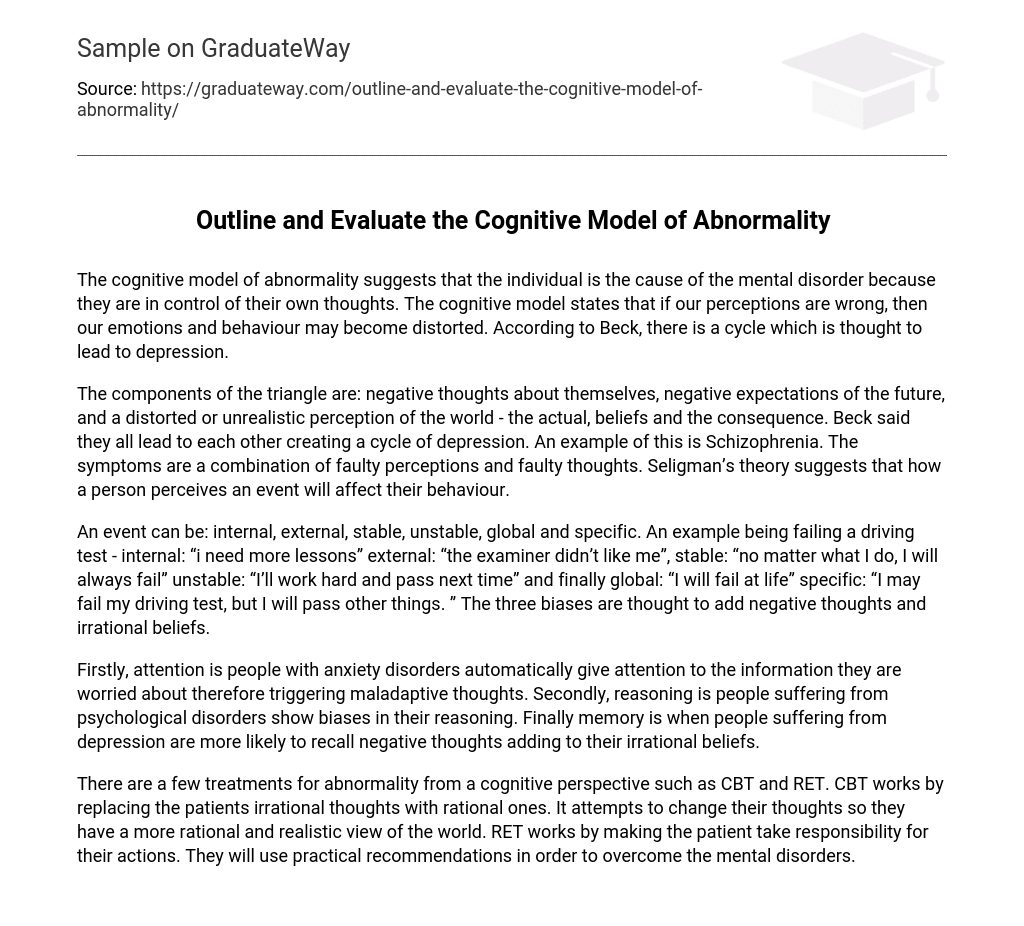The cognitive model of abnormality suggests that individuals are responsible for their own mental disorders due to their control over their thoughts. This model stresses that if our perceptions are inaccurate, it can distort our emotions and behavior. Beck proposes a cycle that is believed to contribute to the development of depression.
According to Beck, the elements of the triangle that contribute to depression include negative thoughts about oneself, negative expectations of the future, and a distorted perception of reality. These components are interconnected and form a cycle of depression. Schizophrenia serves as an example of this cycle, where faulty perceptions and thoughts contribute to its symptoms. Additionally, Seligman’s theory emphasizes that an individual’s perception of an event influences their behavior.
An event can have different characteristics such as being internal, external, stable, unstable, global, or specific. For instance, failing a driving test can be categorized as internal when one thinks “I need more lessons”, external when blaming the examiner saying “the examiner didn’t like me”, stable when believing “no matter what I do, I will always fail”, unstable when determined to “work hard and pass next time”, global when concluding “I will fail at life”, and specific when acknowledging “I may fail my driving test, but I will pass other things.” It is believed that these three biases contribute to negative thoughts and irrational beliefs.
People with anxiety disorders tend to pay attention to worrisome information, which can lead to maladaptive thoughts. Additionally, individuals with psychological disorders may exhibit biases in their reasoning. Moreover, those with depression are more prone to recall negative thoughts, thereby reinforcing irrational beliefs.
There are several cognitive perspective treatments available for abnormality, including CBT (Cognitive Behavioral Therapy) and RET (Rational Emotive Therapy). CBT aims to replace irrational thoughts of patients with rational ones, thereby helping them adopt a more rational and realistic worldview. On the other hand, RET encourages patients to take responsibility for their actions and suggests practical recommendations to overcome mental disorders.





